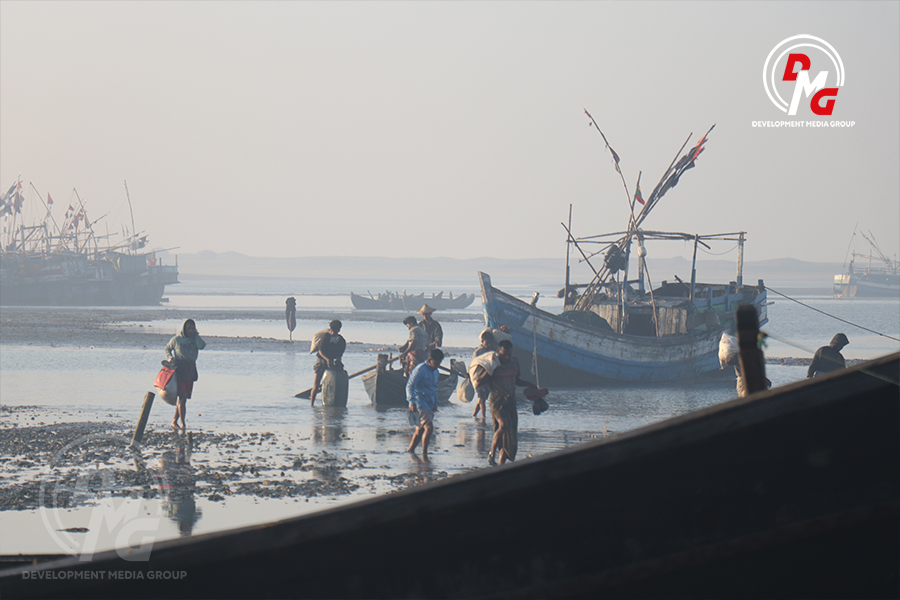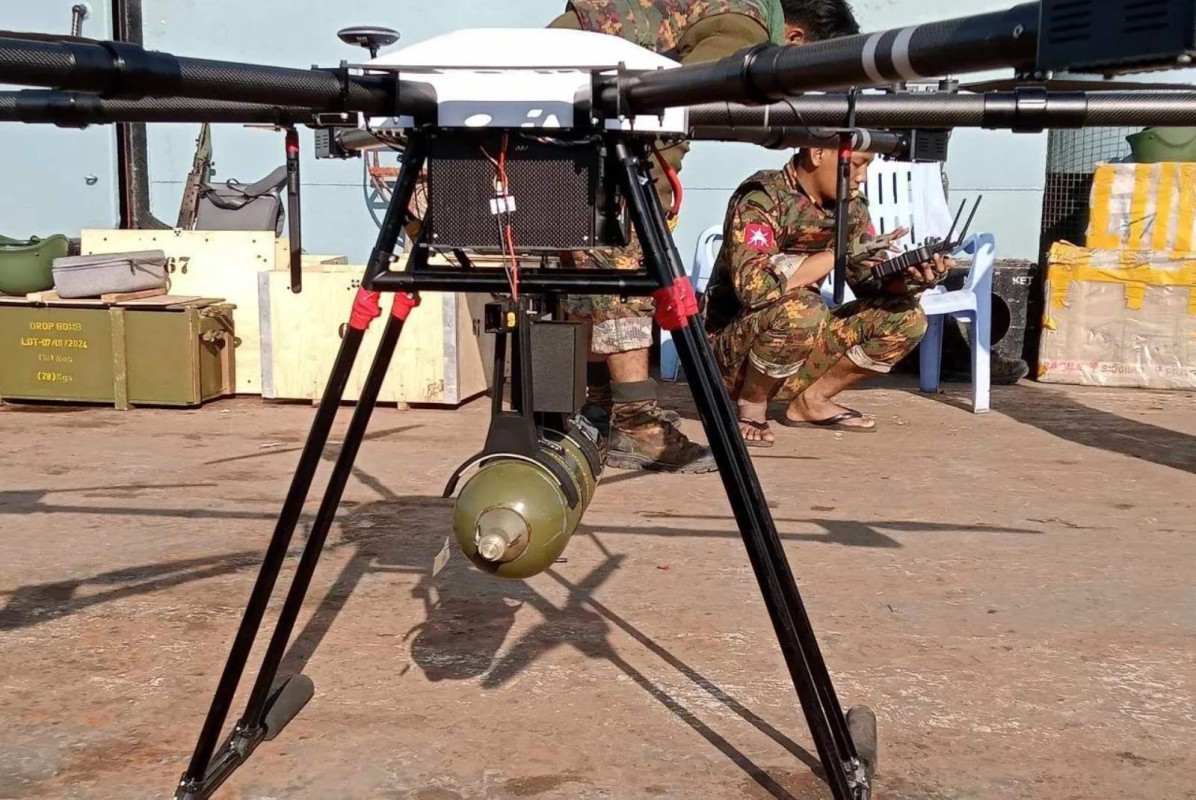- Weekly Highlights from Arakan State (Jan 26 to Feb 1, 2026)
- Arakanese youth stabbed in Mae Sot urgently needs financial aid for medical treatment
- Five years on Myanmar faces uncertain military and political outlook after coup
- Myanmar Navy detains Pauktaw fishermen and demands ransom
- Junta Airstrikes on Arakan and the Consequences for Independent Media
Chickpea trial cultivation deemed success in Arakan State
Chickpea, which is mainly shipped to Arakan State from mainland Myanmar, is being experimentally cultivated in Arakan State, and trial cultivations have thus far been successful, according to the Arakan State Department of Agriculture.
18 Jan 2023

DMG Newsroom
18 January 2023, Sittwe
Chickpea, which is mainly shipped to Arakan State from mainland Myanmar, is being experimentally cultivated in Arakan State, and trial cultivations have thus far been successful, according to the Arakan State Department of Agriculture.
U Oo Tun Myint, head of the Arakan State Department of Agriculture, told DMG that since December 2021, the trial cultivation of white pea in addition to chickpea has been successful in Arakan State.
“Chickpea and white pea are being planted experimentally in every township in Arakan State. Since chickpea and white pea are crops that flow into Arakan State from other regions and states, we believe that farmers can benefit more if they are grown in Arakan State. While chickpea trial cultivation has been successful, white pea is in a condition where the trials will continue,” he said.
Only about 6 acres were able to be grown in the beginning of experimental cultivation of chickpea in Arakan State in 2021, and per acre yield was about 10 baskets. Officials from Arakan State’s Department of Agriculture estimate that by 2022, more than 10 acres of chickpeas could be planted, yielding about 12 baskets per acre.
“As the chickpea sprouts accumulate nitrogen and deposit it in the soil, the nutrient development of the soil is gradually improved and the bean crop can be more successful year after year. Therefore, if you plant a pea crop, it is a crop that has to be practised gradually from year to year, so if the white pea crop is actually planted, it will be successful in the following years,” he explained.
The experimentally grown chickpeas will be sold in March, and white pea cultivation techniques will be shared with Arakanese farmers in February, according to the Arakan State Department of Agriculture.
Arakan State is a region with good agricultural land in terms of its geographical position, but it is important to market and sell the cultivated crops well, said U Aung Kyaw Mya, a farmer from Kyauktaw Township.
“Regardless of the type of cultivation, market and demand are more important to success. Whatever crops are planted in Arakan State, I expect it to be mostly successful. The important thing is that there needs to be a good market for the crops to have buyers,” he said.
Arakan State’s Department of Agriculture officials said that since farmers have learned the methods of chickpea cultivation, yields will be even better in the coming years.
“It is a pleasure to know chickpea trial cultivation is successful in Arakan State,” said U Min Aung, a farmer from Maungdaw Township, while adding that since farmers in Arakan State grow crops on a manageable scale, if they want to cultivate crops on a commercial scale, there are needs for both land and equipment.
The chickpea crop is grown as a winter crop during the winter period, from mid-October to November, and is harvested three and a half months after planting.















.jpg)

